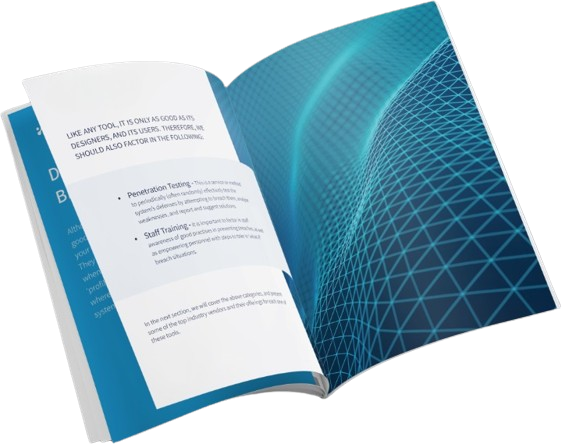When it comes to business financing, the saying ‘knowledge is power’ rings true. As an entrepreneur, you understand the importance of exploring diverse business loan options to fuel your growth and expansion.
From term loans that provide a lump sum with a fixed repayment schedule to lines of credit offering flexibility and ongoing access to funds, the landscape of business lending is vast and varied. However, navigating this terrain can be daunting, and understanding the nuances of each loan type is crucial.
This discussion will shed light on the diverse array of business loan options available, equipping you with the knowledge needed to make informed decisions about securing the capital necessary for your business’s success.
Key Takeaways
- Term loans offer stability with fixed interest rates and predictable repayment schedules, making budgeting easier.
- Lines of credit provide flexible financing options for managing cash flow, allowing businesses to draw funds as needed.
- Equipment financing options include equipment loans for purchasing equipment outright and equipment leasing for temporary use with lower initial costs.
- Alternative financing options such as invoice factoring, merchant cash advances, peer-to-peer lending, and asset-based loans offer unique benefits but also have their own considerations.
Understanding Term Loans
Understanding term loans is essential for any business owner seeking to secure long-term financing for their company’s growth and development. When comparing options for long-term financing, term loans stand out as a popular choice due to their fixed interest rates and predictable repayment schedules.
One of the main pros of term loans is the stability they offer, with fixed monthly payments that make budgeting and financial planning easier. Additionally, they often come with lower interest rates compared to other types of financing, saving you money over the long term. However, it’s essential to consider the cons as well.
For instance, qualifying for a term loan can be more challenging than for other types of financing, and they may require collateral to secure the loan. Furthermore, if you aim to repay the loan early, you may face prepayment penalties, limiting your flexibility.
When considering term loans, it’s crucial to weigh these pros and cons to determine if they align with your business’s needs and financial situation. In comparison to other long-term financing options such as lines of credit or SBA loans, term loans offer a structured repayment plan and fixed interest rates, which can be beneficial for businesses with steady cash flow and long-term growth plans.
Evaluating the terms, interest rates, and repayment flexibility of different loan options will help you make an informed decision that supports your business’s financial health and long-term success.
Exploring Lines of Credit
When exploring lines of credit, it’s essential to consider the flexible financing options available to your business. With revolving credit access, you can draw funds as needed, providing a valuable financial safety net.
Additionally, understanding the interest on used funds is crucial for managing the cost of capital and optimizing your financial strategy.
Flexible Financing Options
Exploring lines of credit provides businesses with a versatile and accessible financing option to manage their cash flow and address short-term funding needs. Lines of credit offer flexible repayment terms and can serve as an alternative financing solution to traditional term loans. This type of financing allows you to borrow funds up to a predetermined credit limit, and you only pay interest on the amount you use. Here’s a comparison of lines of credit with term loans and business credit cards:
| Aspect | Line of Credit | Term Loan | Business Credit Card |
| Repayment Flexibility | Flexible repayment based on amount used | Fixed monthly payments | Flexible, but can lead to high interest |
| Interest Rates | Variable | Fixed | Variable |
| Accessibility | Access funds as needed | Lump sum upfront | Revolving |
Understanding these differences can help you make an informed decision on the most suitable financing option for your business.
Revolving Credit Access
Lines of credit provide businesses with a versatile and accessible financing option to manage their cash flow and address short-term funding needs. Offering flexible repayment terms and the ability to borrow funds up to a predetermined credit limit.
One advantage of revolving credit access is the flexibility it offers, allowing you to borrow and repay funds as needed. This can be particularly beneficial for managing seasonal fluctuations in cash flow.
Additionally, you only pay interest on the amount you borrow, providing cost savings when compared to traditional term loans.
However, a potential disadvantage is the temptation to overspend, leading to increased debt if not managed carefully.
Moreover, interest rates for lines of credit can be higher than those of traditional term loans, impacting overall borrowing costs.
Interest on Used Funds
Interest rates on used funds in revolving lines of credit can significantly impact the overall cost of borrowing for businesses. Understanding the advantages and drawbacks of the interest rates is crucial for making informed financial decisions. Here’s a breakdown:
| Aspect | Advantages | Drawbacks |
| Flexibility | Interest only on funds utilized | Variable interest rates |
| Cost Savings | Lower interest on used funds | Potential for higher rates |
| Financial Control | Paying for what you use | Uncertainty in interest expenses |
SBA Loans: What You Need to Know
When considering SBA loans, it’s important to understand the eligibility criteria and application process.
SBA loans are known for their favorable terms and low interest rates, making them an attractive option for small businesses.
SBA Loan Eligibility
With over 200 lenders in our extensive network, you can explore the eligibility requirements for SBA loans and secure reliable funding options tailored to your business needs. When considering SBA loan eligibility, it’s essential to understand the specific requirements and the SBA loan process. Here are some key aspects to consider:
- Credit Score: The SBA typically requires a minimum credit score of 680 for most loans.
- Business Eligibility: Your business must meet the SBA’s definition of a small business and operate for profit.
- Collateral and Personal Guarantee: SBA loans often require collateral and a personal guarantee from the business owner.
Understanding these SBA loan requirements is crucial for determining if your business qualifies for this type of financing. Working with experienced professionals can help navigate the complexities of the SBA loan process.
SBA Loan Application
Navigating the SBA loan application process requires a thorough understanding of the eligibility requirements previously discussed, particularly regarding credit score, business eligibility, and collateral and personal guarantee obligations.
To apply for an SBA loan, you need to meet specific SBA loan requirements, including a strong credit score, typically above 680, and a solid business plan demonstrating the ability to repay the loan.
The SBA loan process involves completing the necessary application forms and providing detailed information about your business, including financial statements, projected financials, and collateral.
Additionally, you must be prepared to offer a personal guarantee and potentially pledge business or personal assets as collateral.
Understanding the SBA loan requirements and diligently preparing the required documentation is crucial for a successful SBA loan application.
Uncovering Equipment Financing Options
To explore the best equipment financing options for your business, it’s essential to understand the range of financing products available and how they can be tailored to meet your specific needs. When considering equipment financing, you have a variety of options to choose from, each with its own set of advantages and disadvantages.
Here are some key points to consider:
- Equipment Loans: These loans offer a lump sum amount that can be used to purchase equipment outright. Pros include ownership of the equipment from the start, potential tax benefits, and the ability to sell or trade the equipment later. However, cons may include higher upfront costs and the responsibility for maintenance and upkeep.
- Equipment Leasing: Leasing allows you to use equipment for a specified period in exchange for regular payments. The pros of leasing include lower initial costs, potential flexibility to upgrade equipment, and maintenance often being included. However, cons may include higher overall costs compared to purchasing, lack of ownership, and potential restrictions on how the equipment is used.
- Equipment Financing through Manufacturers or Dealers: Some manufacturers or dealers offer financing options for their equipment. Pros may include specialized knowledge of the equipment, potential discounts, and streamlined processes. However, cons may include limited options if you’re set on a specific brand or model and potential bias towards their own products.
When comparing these options, it’s important to consider your business’s cash flow, long-term equipment needs, and overall financial goals to determine the best fit for your specific situation.
Invoice Factoring and Its Benefits
Invoice factoring provides businesses with a valuable financing solution to optimize cash flow and accelerate growth. This form of financing involves selling accounts receivables at a discount to a third-party financial company, known as a factor, in exchange for immediate cash.
One of the key benefits of invoice factoring is improved cash flow, as it provides businesses with quick access to funds that would otherwise be tied up in unpaid invoices. This can be particularly advantageous for businesses facing cash flow challenges or those seeking to take advantage of growth opportunities that require immediate capital.
Another significant advantage of invoice factoring is that it can help businesses avoid taking on additional debt. Since factoring isn’t a loan, it doesn’t create debt on the balance sheet. This can be especially beneficial for businesses that are looking to maintain a healthy debt-to-equity ratio or avoid the potential impact of additional debt on their credit rating.
Additionally, invoice factoring can also provide businesses with predictable cash flow, as it allows them to convert their accounts receivable into cash on an ongoing basis.
Furthermore, invoice factoring can be a flexible financing option, as the amount of funding available is directly tied to the volume of a business’s outstanding invoices. This means that as a business grows and generates more invoices, it can access increasing amounts of funding through factoring. This scalability makes invoice factoring a valuable tool for businesses looking for a financing solution that can adapt to their evolving needs.
Merchant Cash Advances: A Closer Look
With a growing frequency of use among small businesses, merchant cash advances have become an increasingly popular form of alternative financing. This financing option allows businesses to receive a lump sum payment in exchange for a percentage of future credit card sales. Here’s a closer look at merchant cash advances:
- Quick Access to Funds: One of the primary advantages of merchant cash advances is the speed of access to funds. Unlike traditional loans, the application process for a cash advance is typically faster, providing businesses with rapid access to the capital they need.
- Flexible Repayment Structure: Merchant cash advances offer a flexible repayment structure. Instead of fixed monthly payments, repayments are based on a percentage of daily credit card sales. During slower sales periods, the payment amount decreases, offering some relief to businesses.
- High Cost of Capital: While merchant cash advances provide quick access to funds, they often come with a high cost of capital. The factor rate, which determines the total repayment amount, can result in a significant cost to the business. It’s essential to carefully evaluate the overall cost before opting for this financing option.
Merchant cash advances can be a valuable tool for businesses in need of quick capital, but it’s crucial to weigh the pros and cons. As with any alternative financing option, it’s essential for businesses to thoroughly assess their financial situation and consider the long-term implications before pursuing a merchant cash advance.
Peer-to-Peer Lending: Is It Right for You?
Considering the high cost of capital associated with merchant cash advances, you may be interested in exploring alternative financing options such as peer-to-peer lending to determine if it aligns with your business needs and long-term financial goals. Peer-to-peer lending, also known as P2P lending, involves borrowing directly from individuals or groups through online platforms. This form of lending has gained popularity due to its potential for competitive interest rates and streamlined application processes. However, it’s essential to carefully weigh the pros and cons before opting for this alternative financing option.
| Pros | Cons | Alternative Options |
| Competitive interest rates | Limited access to substantial funding | Small business loans |
| Streamlined application process | Potential for higher default rates | Business lines of credit |
| Diverse funding sources | Regulatory and compliance uncertainties | Equipment financing |
Peer-to-peer lending offers the advantage of competitive interest rates, making it an attractive option for businesses seeking affordable financing. Additionally, the streamlined application process can provide quicker access to funds compared to traditional lenders. However, it’s important to consider the potential limitations, such as the relatively limited access to substantial funding and the regulatory uncertainties surrounding this form of lending. Businesses should explore alternative options such as small business loans and lines of credit to make an informed decision that aligns with their specific financial requirements and risk tolerance.
Asset-Based Loans: An Overview
Asset-based loans provide businesses with a financing option secured by their existing assets, enabling them to access capital based on the value of their collateral. These loans are an alternative financing option that can be particularly useful for companies that may not qualify for traditional bank loans due to a lack of creditworthiness or track record.
- Utilization of Assets: Asset-based loans allow you to leverage your company’s assets, such as accounts receivable, inventory, or equipment, to secure funding. This can be advantageous for businesses with valuable assets but a limited credit history.
- Flexible Capital: With asset-based loans, the amount you can borrow is directly tied to the value of your collateral. This provides a flexible source of capital that can grow as your business assets increase in value.
- Risk Mitigation: Lenders offering asset-based loans often focus more on the value of the collateral rather than the borrower’s creditworthiness. This can mitigate the risk for both parties, making it a viable option for businesses with a less than perfect credit profile.
Asset-based loans can be a strategic financing solution for businesses seeking to capitalize on their existing assets. When evaluating alternative financing options, consider the value of your company’s assets and how they can be leveraged to secure the necessary capital for growth and expansion.
Commercial Real Estate Loans: Your Guide
As businesses explore diverse funding solutions, acquiring capital for commercial real estate ventures becomes a pivotal step in achieving long-term growth and stability. Commercial real estate financing offers several benefits for businesses looking to invest in properties.
One significant advantage is the potential for long-term appreciation in property value, which can contribute to the overall financial strength of the business. Additionally, owning commercial real estate can provide businesses with a valuable asset that can be used as collateral for future financing needs.
Furthermore, commercial real estate loans often come with lower interest rates compared to other forms of borrowing, making them a cost-effective funding option for businesses. Moreover, these loans typically offer longer repayment terms, reducing the immediate financial burden on the business and providing more flexibility in managing cash flow.
Another key benefit of commercial real estate financing is the potential for rental income. By owning commercial properties, businesses can generate revenue through leasing space to tenants, thereby creating a steady income stream that can contribute to the business’s overall financial stability.
Frequently Asked Questions
How Can I Improve My Credit Score to Increase My Chances of Approval for a Business Loan?
To improve your credit score and increase your chances of loan approval, consider credit building strategies such as:
- Paying bills on time
- Managing credit utilization
- Disputing errors on your credit report
These measures can strengthen your creditworthiness and make you more attractive to lenders.
Additionally, exploring diverse financing solutions tailored to your needs can provide alternative options for securing the business funding you require.
What Are Some Alternative Financing Options for Businesses With Limited Collateral or Assets?
If you have limited collateral or assets, alternative financing options like unsecured loans, peer to peer lending, cash flow financing, and invoice financing can be viable solutions.
Unsecured loans don’t require collateral, while peer to peer lending connects you with individual investors.
Cash flow financing leverages your business’s anticipated cash flow, and invoice financing helps you access funds tied up in outstanding invoices.
These options provide flexibility and can help businesses with limited assets secure the funding they need.
What Are the Key Factors That Lenders Consider When Evaluating a Business Loan Application?
When evaluating a business loan application, lenders consider various factors from their perspective. They conduct a thorough risk assessment, examining your credit score, business financials, and industry trends.
Your business plan, collateral, and cash flow also play a crucial role. Lenders assess your ability to repay the loan, looking for stability and growth potential.
A strong application that demonstrates low risk and high potential increases your chances of approval.
Are There Any Specific Industry-Specific Loan Options Available for Businesses in Niche Markets?
So, you’re wondering about industry-specific loan options for businesses in niche markets. Well, let’s dive in.
Customized lending solutions are available for niche businesses, offering specialized funding tailored to your industry’s unique needs. Whether it’s healthcare, agriculture, or technology, there are specialized business funding options designed to support your specific market.
These industry-specific loan options can provide the targeted financial support necessary for your niche business to thrive.
How Can I Prepare a Strong Business Plan to Present to Lenders When Applying for a Business Loan?
To prepare a strong business plan for lenders, start by creating a comprehensive document outlining your business model, market analysis, financial projections, and management team.
Lenders prioritize clear and realistic financial forecasts, a thorough understanding of your market, and a solid strategy for success. They assess your ability to repay the loan and the potential for your business to thrive.
Presenting a well-researched and detailed plan increases your chances of securing funding.
Final Thoughts
Over 80% of small businesses rely on some form of financing to fuel their growth and success.[1]
There is a wide range of business loan options available, including term loans, lines of credit, and SBA loans.
With these options, there is a solution to fit your specific needs.
By exploring the diverse range of financing options and understanding the benefits of each, you can make informed decisions. This will help you secure the business capital necessary for achieving your entrepreneurial goals.



